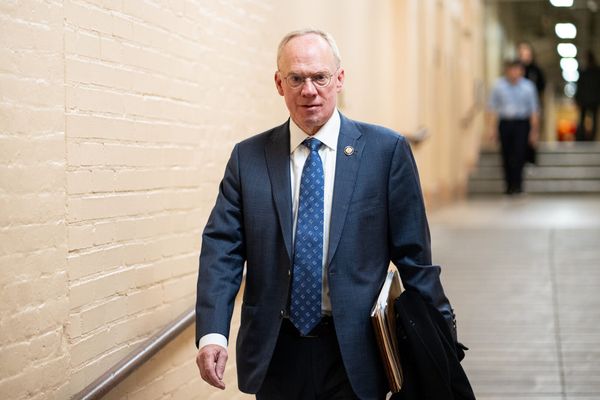
Director of National Intelligence Tulsi Gabbard’s appearance on the All-In Podcast on Monday to defend President Donald Trump's decision to launch a targeted strike against Iran, while cautioning against repeating past U.S. regime change mistakes in the Middle East.
Gabbard Cites Iraq War Experience In Shaping Foreign Policy Views
Host Jason Calacanis pressed Gabbard on her reported reservations about the operation, code-named "Midnight Hammer."
Gabbard said her military service in Iraq shaped her approach to foreign policy, forcing her always to ask: "What is our objective? Is it achievable? Does it serve the best interests of the United States?"
She credited Trump's leadership, saying he carried out "a very precise military operation with a very clear objective that was accomplished in the best possible way and a very clear exit."
Hosts Debate Iran Strike, Risks Of Wider Middle East Conflict
David Sacks, one of the podcast hosts, pushed back, noting he had long feared a war with Iran. "I didn't want a war with Iran. I still don't want a war with Iran," he said.
Chamath Palihapitiya observed the strike "seems to have turned out okay."
Gabbard described the fallout inside Iran as dire: "Their nuclear capability was destroyed, much of their infrastructure destroyed, much of their military capability destroyed… their economy is tanking."
Still, she warned that instability could trigger unpredictable outcomes. "We cannot be simplistic as we look at this challenge," she said.
See Also: Ramit Sethi Lays Out the Most Common Money Traps—And How To Dodge Them Before It’s Too Late
Gabbard Says ODNI Had Become ‘Bloated And Inefficient’
Last month, Gabbard announced major cuts to the office's workforce and budget. The Trump administration moved to reduce the ODNI staff by 40% and cut more than $700 million annually from its budget.
Gabbard said the ODNI had become "bloated and inefficient" over the past two decades and was plagued by power abuses, unauthorized leaks, and politicized use of intelligence.
She emphasized that the restructuring was part of a broader Trump administration effort to reassess foreign election threats and insisted the intelligence community needed to refocus on its core mission of providing unbiased, timely intelligence to the president and policymakers.
Read Next:
Disclaimer: This content was partially produced with the help of AI tools and was reviewed and published by Benzinga editors.
Photo courtesy: JHive from Shutterstock







